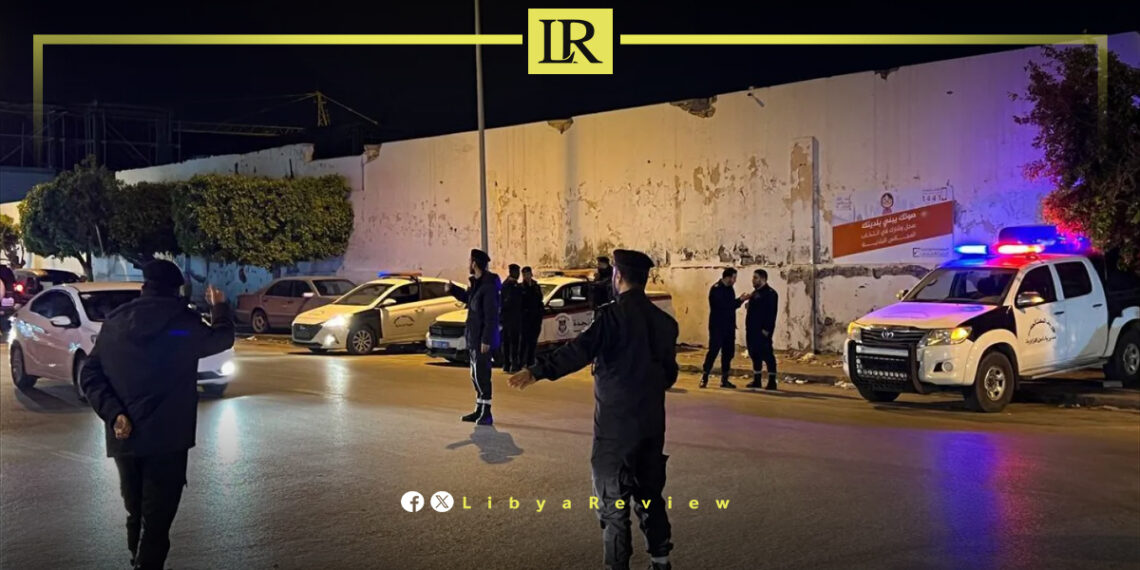Heavy clashes erupted early Thursday in the western Libyan city of Al-Zawiya, marking the second armed confrontation in less than a week between rival factions loyal to the Government of National Unity (GNU) led by Abdel-Hamid Dbaiba.
Residents reported intense exchanges of fire using small and medium weapons following an assassination attempt targeting Mohamed Suleiman, known as “Charlie”, commander of the Al-Zawiya Reserve Force, and his aide Abdulrahman Karzou. Both were seriously injured when their car was hit by an RPG rocket reportedly launched by fighters loyal to Mohamed Bahrun, known as “Al-Far”.
The wounded men were taken to a nearby clinic as the city descended into chaos, with widespread security alerts and militia mobilizations. The GNU has yet to issue any statement regarding the outbreak of violence.
According to informed sources, the targeted commander is affiliated with the Stability Support Apparatus (SSA), headed by Hassan Abu Zariba. The attack took place along Refinery Road, one of the most volatile areas of Al-Zawiya, located about 45 kilometers west of Tripoli.
Schools Closed Amid Renewed Violence
As gunfire escalated and heavy weapons were deployed, local authorities suspended classes for one day in schools located near the clashes “as a precautionary measure to protect students,” according to local media reports.
The latest round of violence follows clashes last Friday between rival militias that resulted in the death of a member of the 52nd Brigade, part of the Western Military Zone.
Al-Zawiya — a strategically vital city on the Mediterranean coast — has witnessed frequent armed confrontations in recent years among local groups competing for influence and control over revenue streams. It is widely regarded as one of the most unstable cities in western Libya.
Analysts: Militia Rivalries Deepening
Human rights activist Nasser Al-Hawari attributed the recurring violence to longstanding rivalries among militia leaders, describing the latest clashes as part of “old score-settling between armed groups.” He accused the GNU of failing to dismantle the militia system, saying that “armed factions have become stronger than the state institutions themselves.”
Despite repeated flare-ups, the Dbaiba government has remained silent, while residents live in fear of another escalation amid the proliferation of weapons and the near absence of formal state authority.
Al-Hawari warned that instability in Al-Zawiya — which he described as “the capital’s shield” — poses a direct threat to the security of Tripoli and the entire western coastline.
From Drone Strikes to Fragile Truces
Earlier this year, in January 2025, the Dbaiba government launched an operation dubbed “Snake Hunt” to dismantle what it called “criminal dens” in Al-Zawiya, led by Major General Salah Al-Namroush, commander of the Western Coastal Region. However, the campaign, which initially involved the use of drone strikes, ended in a tribal-mediated truce rather than decisive results.
Former Volcano of Rage commander Nasser Ammar condemned the renewed bloodshed, describing it as “a new chapter in Libya’s cycle of impunity.” In a public statement, he wrote: “More blood is being spilled in our streets without accountability or deterrence. When law disappears, weapons become the judge and the streets turn into arenas for settling scores.”
Criminal Networks and International Scrutiny
Previous UN and human rights reports have identified Al-Zawiya as a key hub for organized crime networks dominating the western coast from Zuwara to Sabratha and Warshefana, involved in fuel smuggling, human trafficking, and illegal migration.
The reports have linked several influential figures to these networks, including Mohamed Al-Amin Kashlaf, head of the Petroleum Facilities Guard, alleged to be a central figure in fuel smuggling; Mohamed Bahrun (Al-Far), a close Dbaiba ally; and MP Ali Abu Zariba and his brother Hassan Abu Zariba, commander of the Stability Support Apparatus.
EU and UK Diplomatic Engagement
Amid the unrest, the EU–Libya Joint Technical Mission on Migration and Border Management met in Brussels with officials from Tripoli and Benghazi, discussing “shared challenges and coordinated, lawful approaches to border control,” according to EU Ambassador Nicola Orlando.
The meeting included talks with the European Commission and UN agencies on issues such as migrant returns, human trafficking, and search-and-rescue operations in the Mediterranean.
In parallel, UK Ambassador Martin Longden praised Libyan Attorney General Al-Siddiq Al-Sour for cooperating with British and Libyan teams in combating terrorism and irregular migration crimes. Longden’s remarks came as he concluded his diplomatic mission in Libya.


